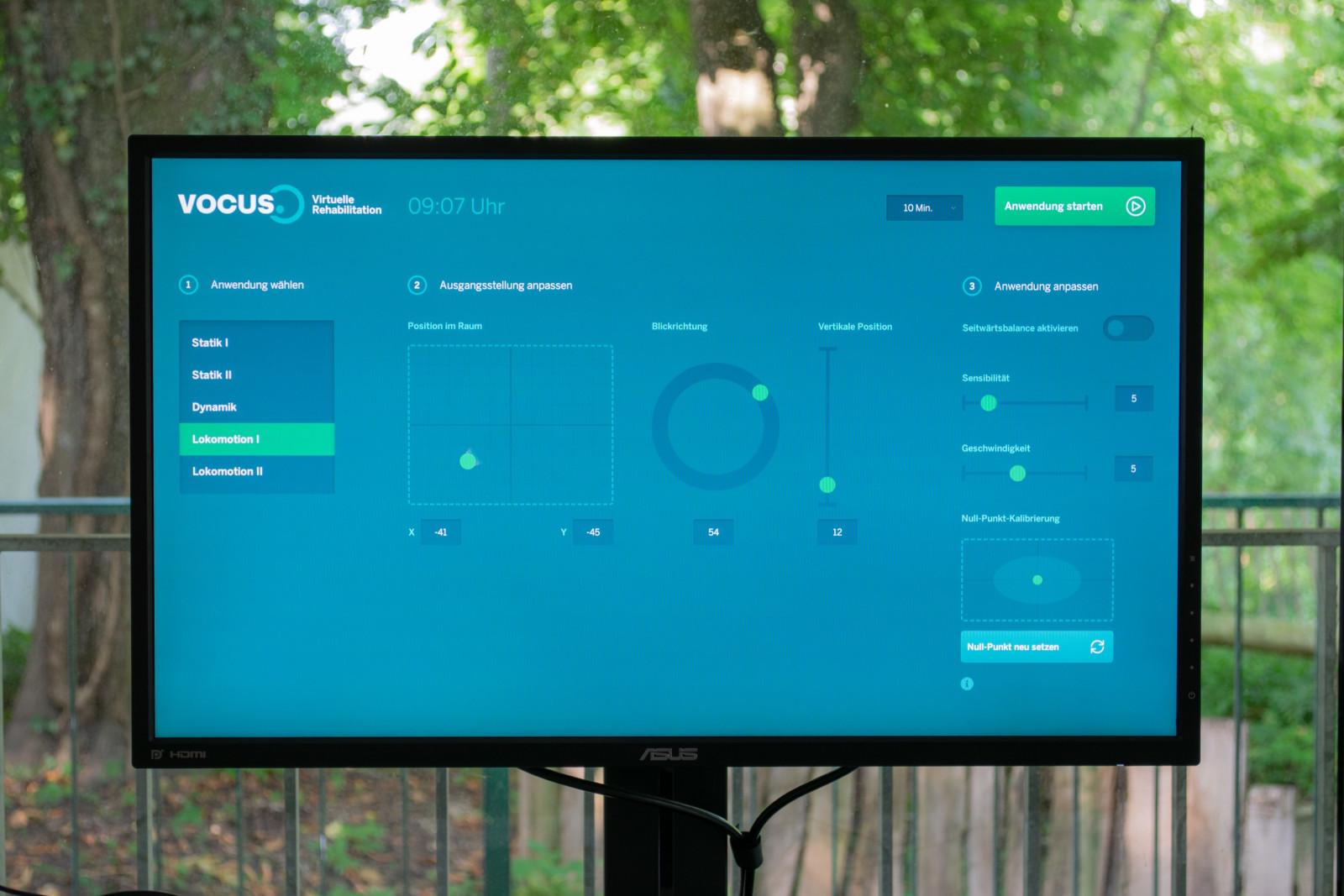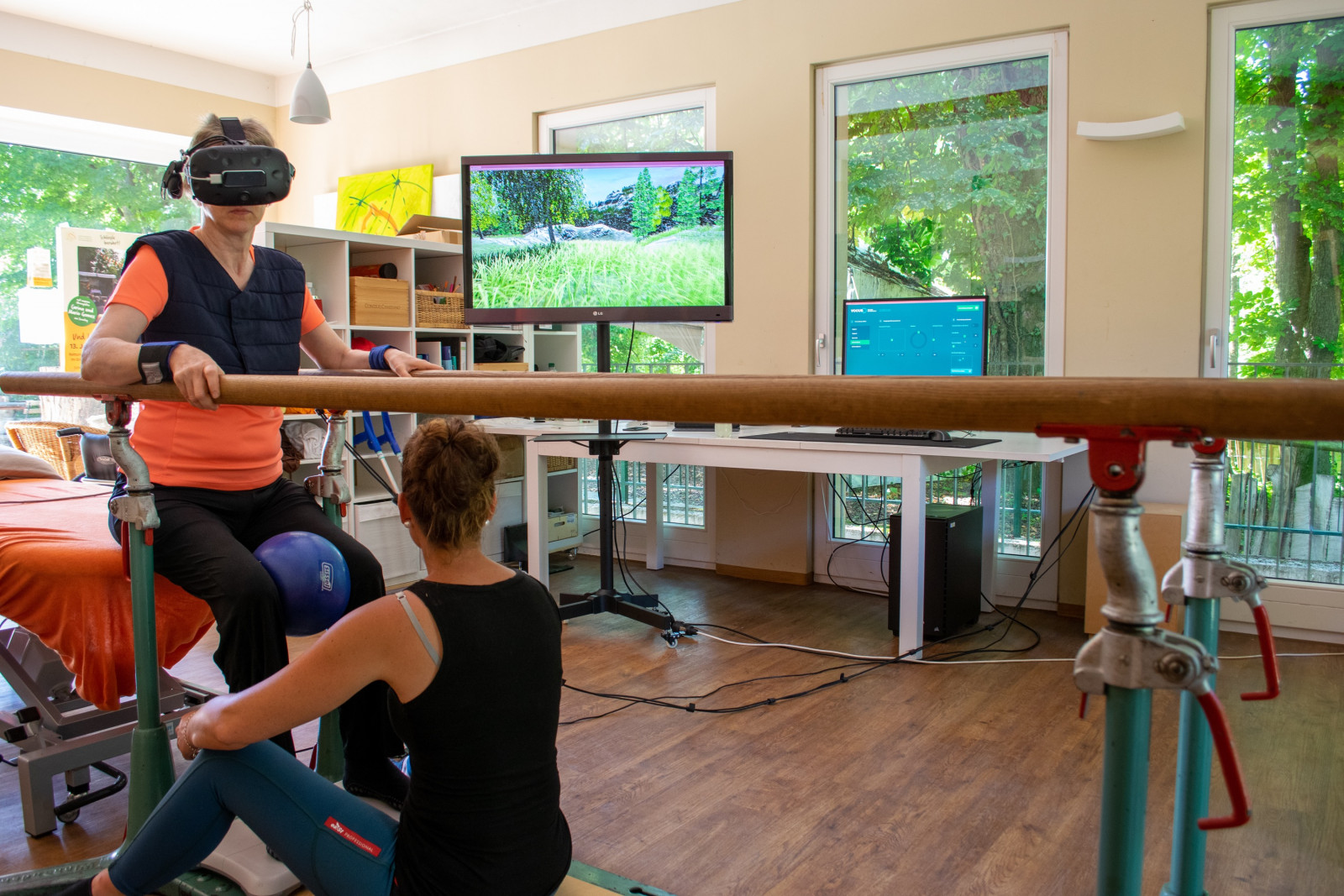-
Role
Idea, Concept, Research,
Design, Development -
Type
Bachelor Thesis
-
Supervisors
Prof. Dr. Lasse Scherffig
Prof. Dr. Carolin Höfler -
Year
2019
People move for many reasons and in many different ways. To be able to move, whether large or small, always also means to be able to make free decisions, to (spatially) move further. For interacting with our environment, movement is fundamental: without the motor abilities to move the eyes or the mouth, we could neither see nor speak.
Those who can no longer (fully) move are often dependent on external help, and lose a great part of their independence and quality of life. Movement disorders can occur in different ways and restrict the affected person in various actions. If they are chronic, in most cases it is due to damage to the central nervous system, the control unit of the human body. In neurological physiotherapy, these lost motor skills are tried to restore or substitute functions are trained – i.e. alternative movements are trained in order to achieve a certain action goal.
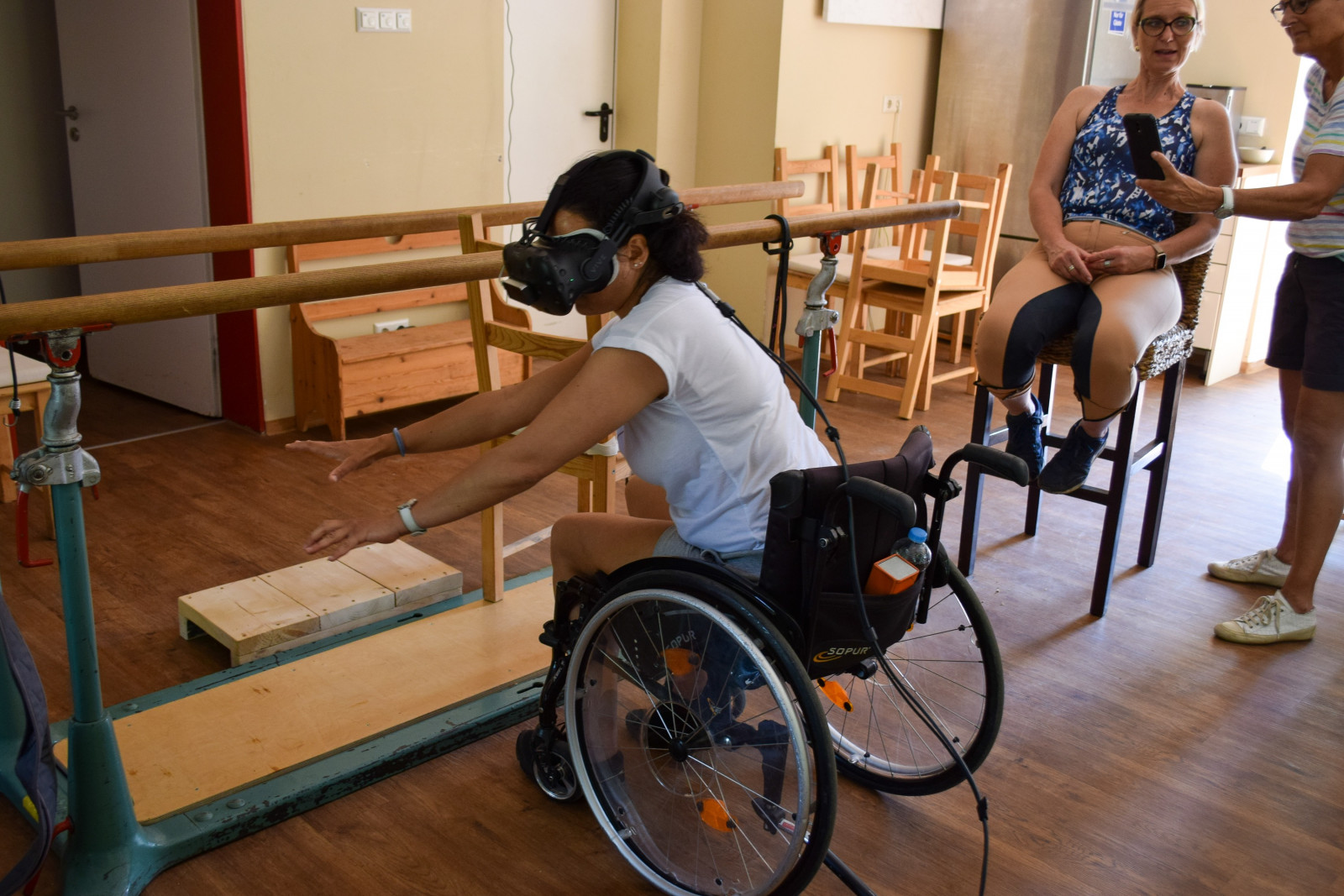
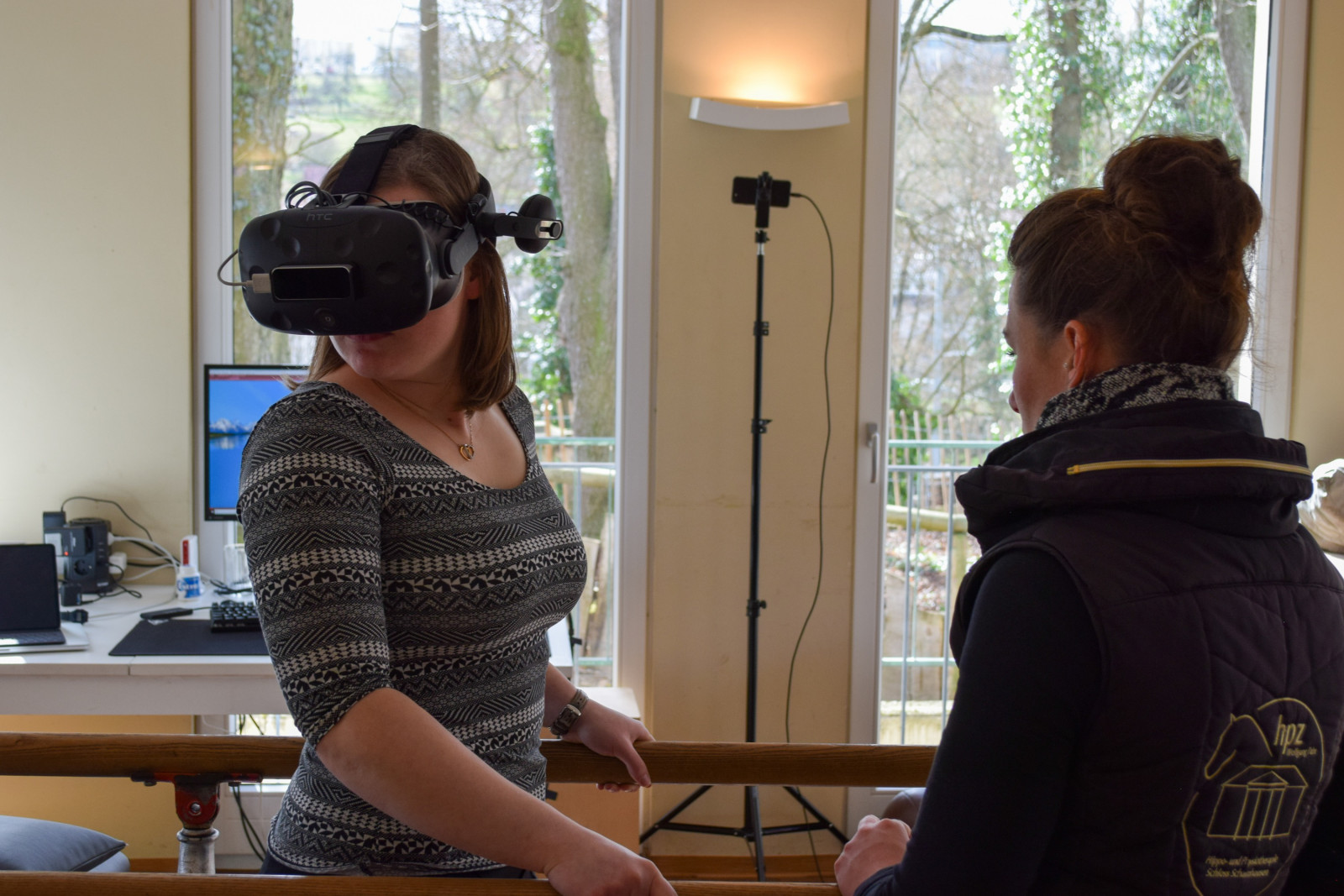
VOCUS is a virtual reality application for use in neurological physiotherapy. Physically handicapped people are hindered every day by barriers in the physical environment and thus actually still possible movement sequences. Through the barrier-free design of the virtual space with targeted placement of virtual auxiliary objects, the focus of the user can be shifted away from the conscious execution of movement towards the achievement of an action goal. The feeling of psychological immersion and the omission of one's own body image in virtual space lead to a shift in the boundaries of one's own physical possibilities for the reality valid at the moment of immersion.
VOCUS bundles different application scenarios, which, depending on the clinical picture and the chosen virtual and physical starting position of the user, can evoke different motor action patterns. Each application can be adjusted to the individual motor abilities of the user and can therefore be applied independently of the clinical picture.
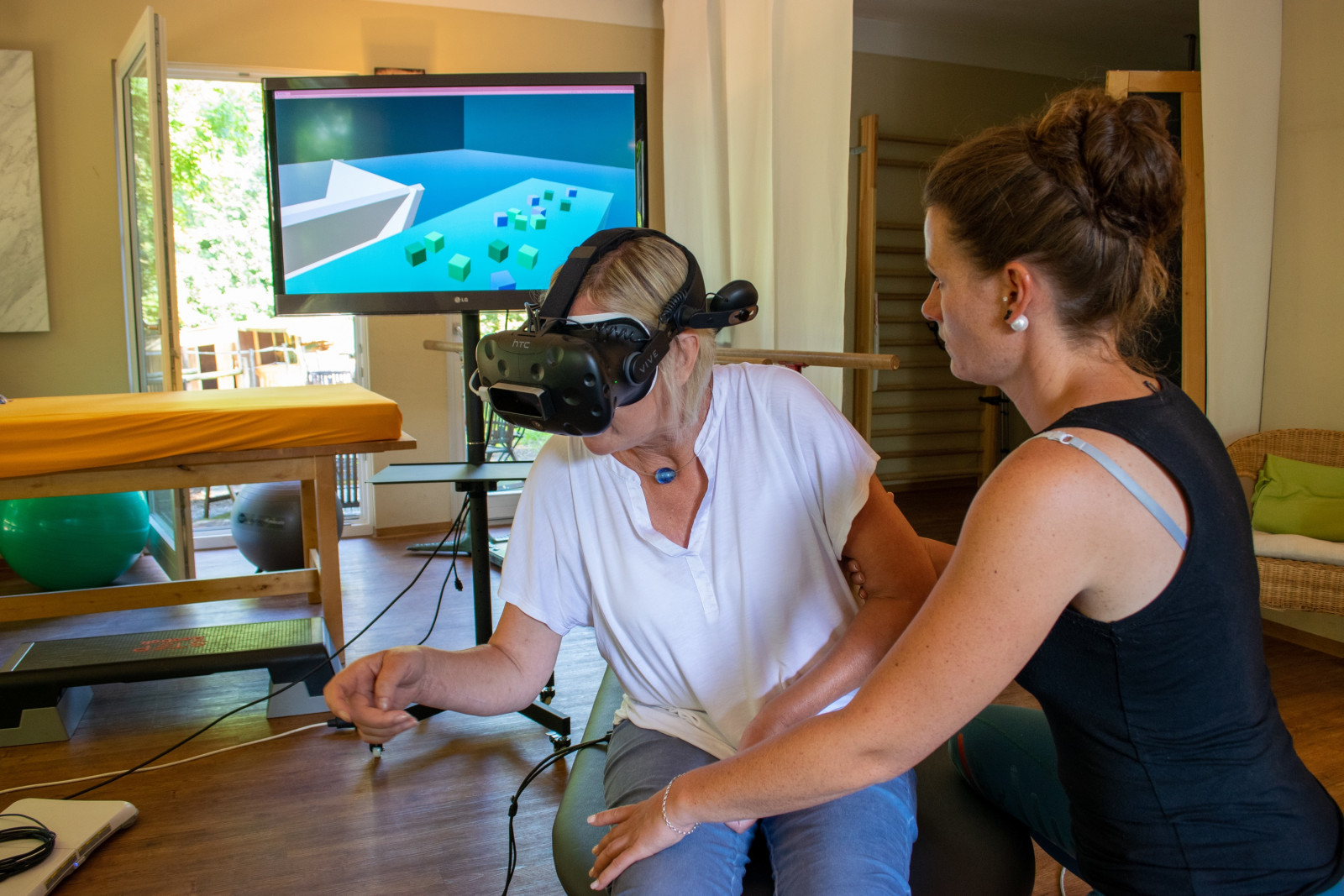
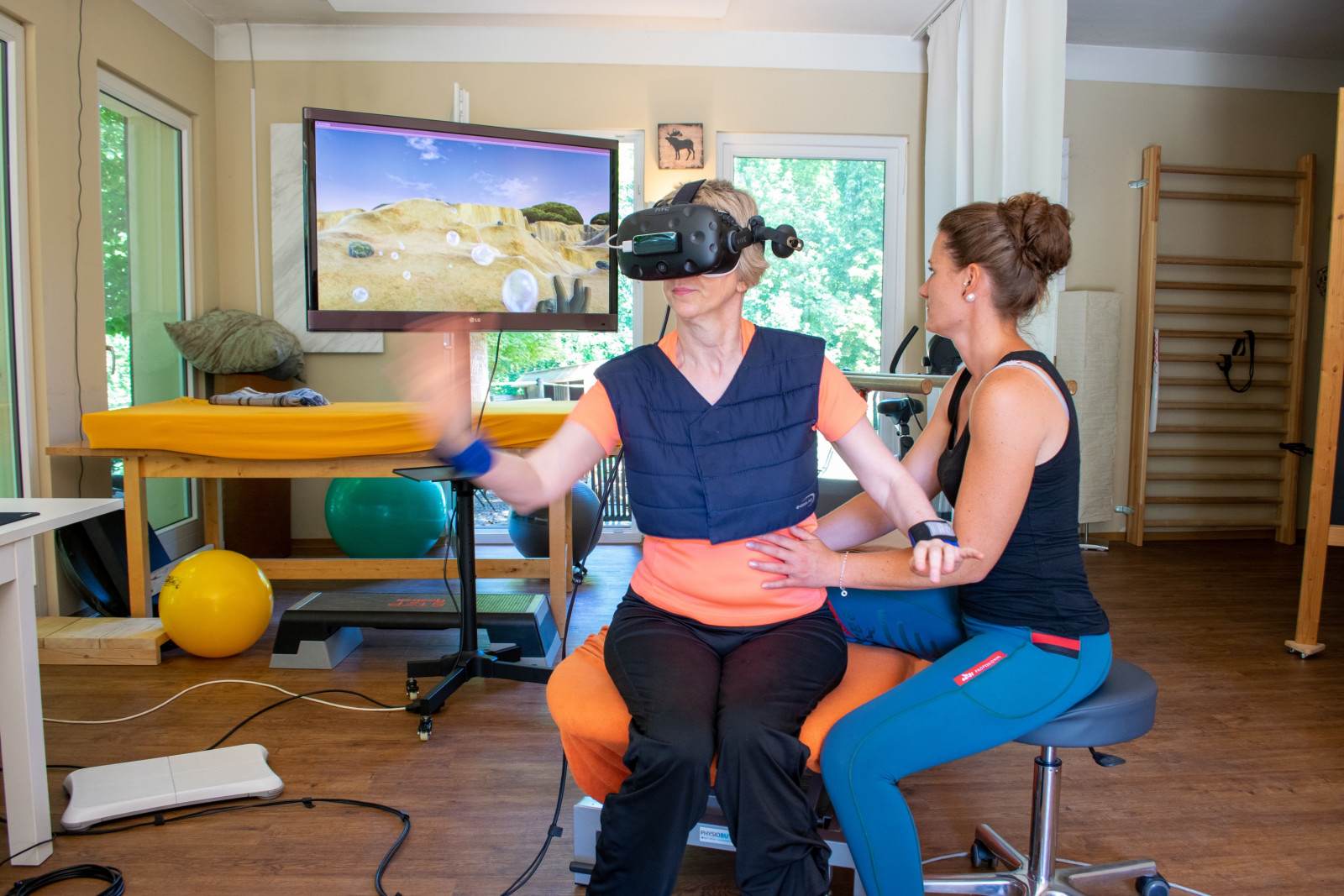
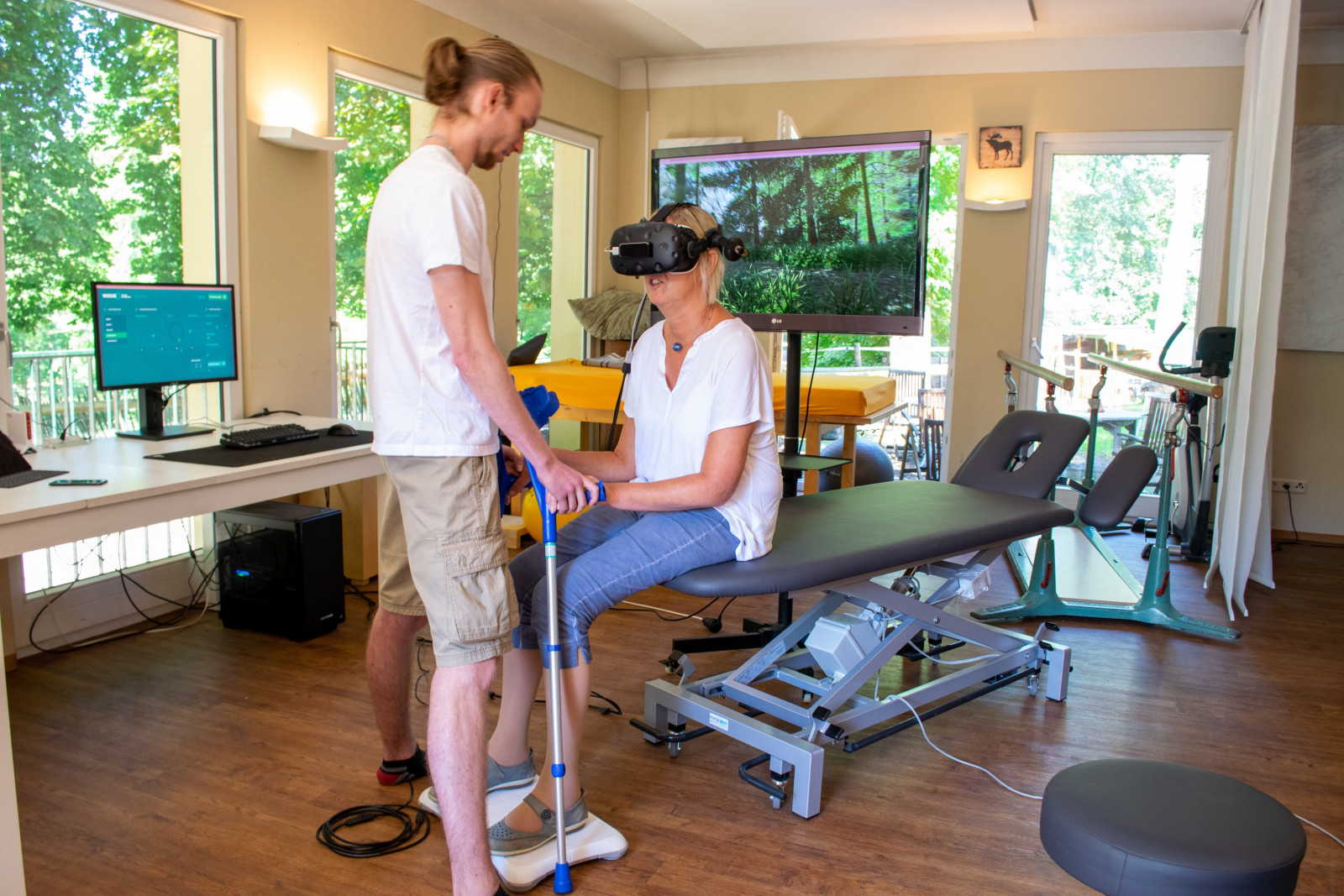
VOCUS has been ranked First Place at Kölner Design Preis 2019, exhibited at KISDparcours 2019 and during the exibition for Kölner Design Preis 2019 at Museum für angewandte Kunst (MAKK) in Cologne.
